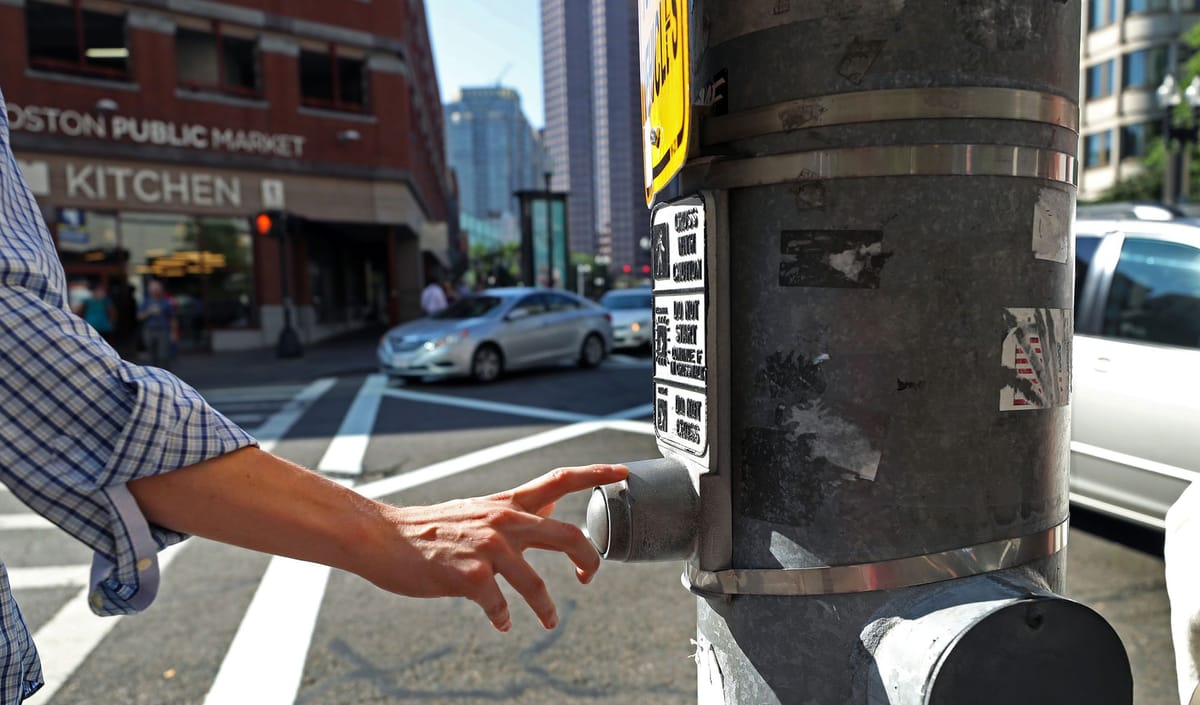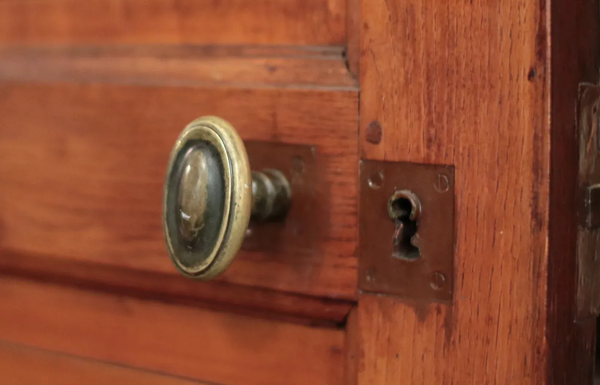We are all surrounded by "placebo buttons"

From Jacobo Prisco for CNN: "In New York City, only about 100 of the 1,000 crosswalk buttons actually function, confirmed a spokesperson from the city’s Department of Transportation in an email. That number has steadily decreased in recent years: When the New York Times revealed that the majority of New York’s buttons didn’t work in 2004, about 750 were still operational. The world is full of buttons that don’t actually do anything. They’re sometimes called “placebo buttons” – buttons that are mechanically sound and can be pushed, but provide no functionality. Like placebo pills, however, these buttons may still serve a purpose, according to Ellen Langer, a Harvard psychologist."
I stopped speaking at 19 and suddenly found my artistic voice

From Henn Kim for The Guardian: "As a teenager living near Busan, South Korea, I felt that the everyday noises around me were like a battlefield. When I was 17, I started wearing headphones to escape. I was 19 when I decided to stop speaking. Despite my silence, friends at school valued me as a listener. We communicated through nods and gestures. Growing up, I felt trapped because I couldn’t express my emotions. Now, without words, I felt inspired. I started to communicate via text messages. Unlike spoken words, these can be edited. I moved to Seoul and began working part-time at a club when I was 22. There I met like-minded people who loved art. Finally, I began to speak a little."
How a mentally disabled man recorded his life through property title deeds

From Word magazine: "Sometime in the mid-60s, George and Pansy began investing their limited resources in real estate; buying and selling valueless plots of land in the Seattle area. These investments never made much money, but they ultimately allowed George to create a strange, disjointed autobiography within the legal records of Washington State. Whenever a parcel of land is bought or sold, the title deed is recorded on 16mm microfilm in the county courthouse. George discovered that, due to a quirk of the law, anyone who pays the nominal per-page fee can record anything they want as a "title deed." So he began using this recording system for purposes that were never even envisioned."
A note from the editor: If you like this newsletter, I'd be honoured if you would help me by contributing whatever you can via my Patreon.
When a Chicago newspaper bought a bar to expose corruption

From the Sun-Times: "The Chicago Sun-Times began publishing an elaborate 25-part series in January 1978, following undercover work by a team of reporters who purchased a run-down dive bar — the Mirage tavern — to expose corrupt city inspectors who glossed over obvious code violations in exchange for bribes. Forty years later, the reporters who worked on the undercover series shared their memories at an event moderated by editor-in-chief of the Sun-Times Chris Fusco. “Even in an era where newspapers did a lot of undercover journalism, heavy-lifting, reporters being able to take months to do work on one story, this one stood out because of its creativity,” Fusco said.
This Japanese shop has been in business for over a thousand years

From Ben Dooley for the NYT: "Naomi Hasegawa’s family sells toasted mochi out of a small, cedar-timbered shop next to a rambling old shrine in Kyoto. The family started the business to provide refreshments to weary travelers coming from across Japan to pray for pandemic relief — in the year 1000. Japan is an old-business superpower. The country is home to more than 33,000 with at least 100 years of history — over 40 percent of the world’s total, according to a study. Over 3,100 have been running for at least two centuries. Around 140 have existed for more than 500 years. And at least 19 claim, like the Hasagewa family, to have been continuously operating since the first millennium."
When people are going blind, their brain sometimes creates hallucinations

From Julia Rothman for The New Yorker: "When I first saw them, they were in the lobby of my building," said Ron Markowitz, who suffers from Charles Bonnet syndrome. "These people were moving generally in my direction, but not reaching me. There didn't appear to be any conversation between anybody. There was no noise or sound. They were on the ground, but there was no walking. They were just gliding. They were in brown tones and dressed in costime from the late nineteenth century. There were no hands or arms. I could see they had faces, but I couldn't see their features. I was told that what I have is called Charles Bonnet syndrome – my brain is trying to compensate for what my eyes aren't seeing. It's trying to help me fill in the blanks."
In every state but one, the game is called "Duck, Duck, Goose"
The only state in the nation that's right. pic.twitter.com/zgvRVF1rsK
— Best Of Minnesota (@BestPixMN) January 7, 2024
Acknowledgements: I find a lot of these links myself, but I also get some from other newsletters that I rely on as "serendipty engines," such as The Morning News from Rosecrans Baldwin and Andrew Womack, Dan Lewis's Now I Know, Robert Cottrell and Caroline Crampton's The Browser, Clive Thompson's Linkfest, Noah Brier and Colin Nagy's Why Is This Interesting, Maria Popova's The Marginalian, Sheehan Quirke AKA The Cultural Tutor, the Smithsonian magazine, and JSTOR Daily. If you come across something interesting that you think should be included here, please feel free to email me.



